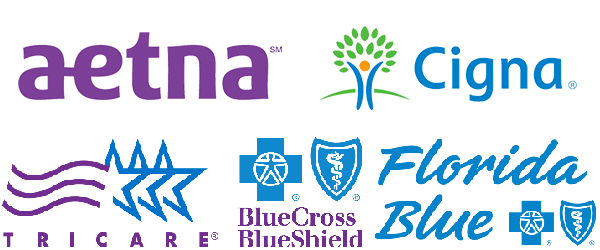What Is Dry Drunk Syndrome?
If you are currently in recovery or have been surrounded by individuals pursuing recovery, the term dry drunk has most likely popped across your radar. It might have been the topic of discussion through phrases such as, “She’s been in active recovery for 10 years, but she’s a dry drunk”, or “He behaves in that manner because he’s a dry drunk.”
To define dry drunk or dry drunk syndrome, it’s important to realize that the term has been first conceived by the creators of the 12-Step Program, AA (Alcoholics Anonymous). The author R.J. Solberg expounded on the term in his book published in 1970, The Dry Drunk Syndrome, as “the presence of actions and attitudes that characterized the alcoholic before recovery.”
If you or someone you know is a dry drunk, you most likely have ceased all alcohol use or substance use but continue in the same ways you once did when you were using. Someone struggling with dry drunk syndrome might attain strained relationships with their loved ones. It’s possible that they can still suffer internally and externally from unhealthy habits.
Even though the individual struggling with has quit alcohol use, they have yet to tackle the emotional baggage they contain that led them to alcohol use in the first place. The dry drunk syndrome is more common among people who have vacated their drug and alcohol addiction on their own. The individuals who engage in this typically do not attain a professional support network that is more equipped to guide them through the difficult changes life is presenting.
Individuals who undergo professional treatment for drug and alcohol abuse and addiction are less likely to develop the dry drunk syndrome issue. Though the phrase dry drunk has been connected with ridicule of the 12-Step community, it’s pivotal to recognize that the dry drunk syndrome poses a legitimate psychological phenomenon that can occur in anyone’s life. The dry drunk syndrome is not a sign of someone failing innately nor is it a result of not fully working the program. The dry drunk syndrome can be conquered, it requires a simple willingness to uncover the root of the individual’s addiction.
Table of Contents
- 1 What Are Signs Of Being Dry Drunk?
- 2 What Is Emotional Sobriety In Recovery?
- 3 What To Do If You Or A Loved One Is Dry Drunk?
- 4 Find Help At Miracles Recovery
- 5 References:
- 6 Treatment Models
- 7 We Accept Most Insurance
- 8 How Do I Choose the Right Alcohol Use Counseling Program?
- 9 7 Steps to Finding the Right Rehab Counseling in Port St Lucie
- 10 Tips for Finding the Right Substance Abuse Counseling for You
Relapsing In Early Recovery
Relapsing in early recovery is extremely common. A relapse prevention plan is extremely beneficial during and after treatment to achieve long-term sobriety.
Individuals who normally seek help for drug and alcohol addiction frequently believe that saying no to substance use and alcoholism is the only answer needed to fix their problems. By not engaging in substance use or alcohol is the first crucial step to leading to recovery, it is not the tell-all for long-lasting recovery. Most people have utilized drug and alcohol use to assist with coping with the following circumstances:
- Destressing from an overwhelming lifestyle
- Mental health issues such as anxiety
- Coping with past trauma
Oftentimes, individuals fall into the dry drunk syndrome trap by saying no to drug and alcohol addiction but refuse to get the adequate assistance they need for the underlying problems that prolonged the addiction in the first place. Author Carole Bennett M.A. described the definition of a dry drunk in a Psychology Today article as, “One that abstains from alcohol, but is still grappling with the emotional and psychological maladies that may have fueled their addiction, to begin with, and continues to have a stranglehold on their psyche.”
By engulfing in evidence-based programming for drug and alcohol treatment addiction, the individual’s mental health can be recovered through the following major entities:
- Mind
- Soul
- Body
Treating the individual struggling with a comprehensive approach using therapy has been proven to help work through any underlying issues caused by addiction. By instilling this into the recovery process, the factors that lead to becoming a dry drunk are exposed and long-term recovery provides a support system.
What Are Signs Of Being Dry Drunk?
Dry drunk syndrome exclusively operates within a person’s mind. Matter-of-factly psychologists since 1955 have sustained that working on an individual’s “inner life” is key to overcoming the dry drunk mentality. As mentioned previously, comprehensive treatment such as therapy and recovery programs such as 12-Step groups, the root discovery of addiction can be learned.
- Substituting another addiction such as gambling or sex over alcohol use or substance use
- Showing jealously of friends and other individuals who can drink safely
- Ongoing emotional issues such as irritability, depression, anxiety, anger, etc
- Romanticizing drinking and often reminiscing on the drinking days
- Resenting family members and loved ones for past conflicts/issues
- Engaging in the same lifestyle but not using drugs or drinking
- Continuing to be self-obsessed and self-centered
- Being irritable, discontent, and restless
The Other Dry Drunk Signs Includes:
- Ongoing relationship issues with other people
- Negativity and anger surrounding recovery
- Being angry for no apparent reason
- Fear of relapse
You can be a dry drunk if you are 20 years sober or are 2 weeks sober. Multiple individuals undergo regret their entire recovery process because of horrible feelings resurfacing in their minds of when they were first using. The major difference is putting the substance down. By living the dry drunk syndrome lifestyle, pain is dispersed not only upon the individual but also among those surrounding them. When it truly comes to reaching sobriety, everything needs to change for that individual to truly experience freedom from addiction.
Escaping what once bought them temporary freedom can pose as an intimidating aspect for many individuals struggling with addiction. It’s extremely scary to abort the life they once knew and engage in seeking a new way to cope with their problems. Because of the challenges recovery faces, it’s vital to have a support team during this difficult time.
Upon asking yourself the pressing question, “What is a dry drunk, and am I a dry drunk?”, it will be essential to analyze the following factors:
- Which relationships with others have changed/haven’t changed
- Behaviors
- Feelings
- Life
Recovery simply isn’t just about not engaging in drug and alcohol or substance use, but more so about altering how an individual handles life problems that come into their way, and about changing how they think.
What Is Emotional Sobriety In Recovery?
A term that is closely connected with dry drunk syndrome is emotional sobriety. Emotional sobriety is defined as when one has not only ceased substance use but has also worked on underlying issues causing addiction as well as modifying their ways of tackling how to deal with uncomfortable feelings. According to co-founder of AA, Bill W., “emotional sobriety is essential for sustained recovery.”
In a letter that Bill wrote to a friend in the 1950’s, he spoke about emotional sobriety and how it poses as essential for a happy and well-rounded life. Bill W also discussed how he went on to replace his unhealthy alcohol dependence with an unhealthy circumstance and people dependence. As Bill continued to articulate, he went on to explain how his unhealthy dependence revolved around outside factors was the cause of his depression.
Without the issues being addressed, sobriety can become extremely difficult and be filled with unhappiness and fear, or it can end up not lasting. Bill W discovered that the answer to this problem is to expand his relationship with God or a Higher Power and his overall spirituality.
Fast forward to how spirituality looks today, it poses a bit differently. Though the spirituality aspect of emotional sobriety is pivotal, there is more than meets the eye. A huge part of it is learning how to respond to difficult situations and finding new ways to cope. The most paramount piece of emotional sobriety is learning how to deal with particularly uncomfortable feelings effectively. There are a plethora of individuals who have gone through years of uncomfortable memories and feelings. Emotional sobriety involves the following steps:
- Walking through feelings
- Learning feelings
- Staying sober
Even though it might seem impossible, a plethora of individuals have learned how to successfully understand and manage their feelings and new coping skills. These same individuals have learned how to walk through extremely difficult situations while maintaining sobriety both emotionally and physically.
Physical Social Factors Of Alcoholism
Scientists have been attempting to discover for years if there is an “alcoholic gene” or another indicator that would make someone more likely to become alcohol dependent. According to the latest research and most recent review, the heritability of alcohol use disorder is 49% which indicates that about half of the risk of alcoholism is due to genetic factors. The shared environment in which members of a similar family live results in 10% of the risk of alcoholism.
Therefore, this suggests that genetics are a stronger risk factor than the environment.
Psychological Social Factors Of Alcoholism
Individuals who suffer from the following are more likely to develop alcoholism:
- Bipolar disorder
- Social anxiety
- Depression
Approximately 20% of individuals who undergo depression are dependent on alcohol and over 40% of individuals who have bipolar disorder are alcohol dependent. Many individuals utilize alcohol as a coping mechanism tool to deal with their mental illness. For example, some individuals with depression claim that alcohol elevates their mood. Meanwhile, some schizophrenia sufferers claim that alcohol “quiets” the voices in their heads.
Social Factors Of Alcoholism
Many cultural and social factors influence alcoholism. The most common place where alcohol is embraced and celebrated is college, typically in the form of binge drinking. While there are cultures that consider alcohol shameful making it more difficult for the individual to seek treatment, therefore hiding their condition due to the stigma surrounding it.
What To Do If You Or A Loved One Is Dry Drunk?
If you suspect that you or a loved one might have the dry drunk syndrome, there are a few steps you can take to help.
Seek Professional Help
If you are in treatment, you must speak to the therapist about this. And if you completed treatment, it’s paramount to reach out to aftercare support. This could look like searching for a therapist who is specially trained in working with individuals addictions on:
- Utilizing treatment at a rehab that uses evidence-based, comprehensive programs
- Intensive outpatient programs aimed to help kickstart emotional recovery
- Outpatient basis
Therapies such as dialectical-behavioral therapy (DBT) and cognitive-behavioral therapy (CBT) are both extremely helpful for individuals in recovery. In addition, discovering a treatment center with a strong alumni program is essential. This will allow individuals to receive ongoing care and support from professionals who operate in the following:
- Supporting you
- Your recovery
- Knowing you
Being a dry drunk can be just as discouring and painful as an active addiction could be. For example, the act of turning down or putting down a drink or other substance and still feeling the same following emotions can pose extremely discouraging.
- Hopelessness
- Depression
- Frustration
- Anxiety
- Anger
When this standpoint occurs, the individual might feel like there is no point in pursuing sobriety and in turn want to quit instead. It’s vital to understand that any individual can achieve emotional sobriety and avoid the dry drunk syndrome.
Find Help At Miracles Recovery
The road to discovery typically isn’t easy, but the continuous journey of self-discovery, change, and growth is worth it. As you uncover and embrace all these aspects, it’ll be more possible to secure sustained true freedom and recovery from addiction. If you or someone you know is experiencing dry drunk syndrome, contact us today.
References:
https://futuresrecoveryhealthcare.com/blog/what-is-a-dry-drunk/
Miracles Recovery Center utilizes a variety of treatment modalities to meet our patient's needs at our Port St. Lucie drug and alcohol rehab. They include:

Treatment Models
Spirituality
We Accept Most Insurance
Miracles Recovery Center in Port St. Lucie, FL works with most commercial insurance providers to cover most - if not ALL - of the costs associated with treatment! If you are covered under health insurance, please give us a call so that we can verify your benefits and substance abuse coverage. We are also an in-network provider and contracted with the following health insurance providers:

How Do I Choose the Right Alcohol Use Counseling Program?
Learn about the key factors to consider when selecting an alcohol use counseling program. Find the right fit for your needs and start your journey to recovery.
7 Steps to Finding the Right Rehab Counseling in Port St Lucie
Learn how to find the right rehab counseling in Port St Lucie with these 7 essential steps. Get the guidance and support you need for a successful recovery journey.
Tips for Finding the Right Substance Abuse Counseling for You
Learn how to find the right substance abuse counseling for your needs. Get tips on evaluating treatment options and choosing a program that aligns with your goals and preferences.





